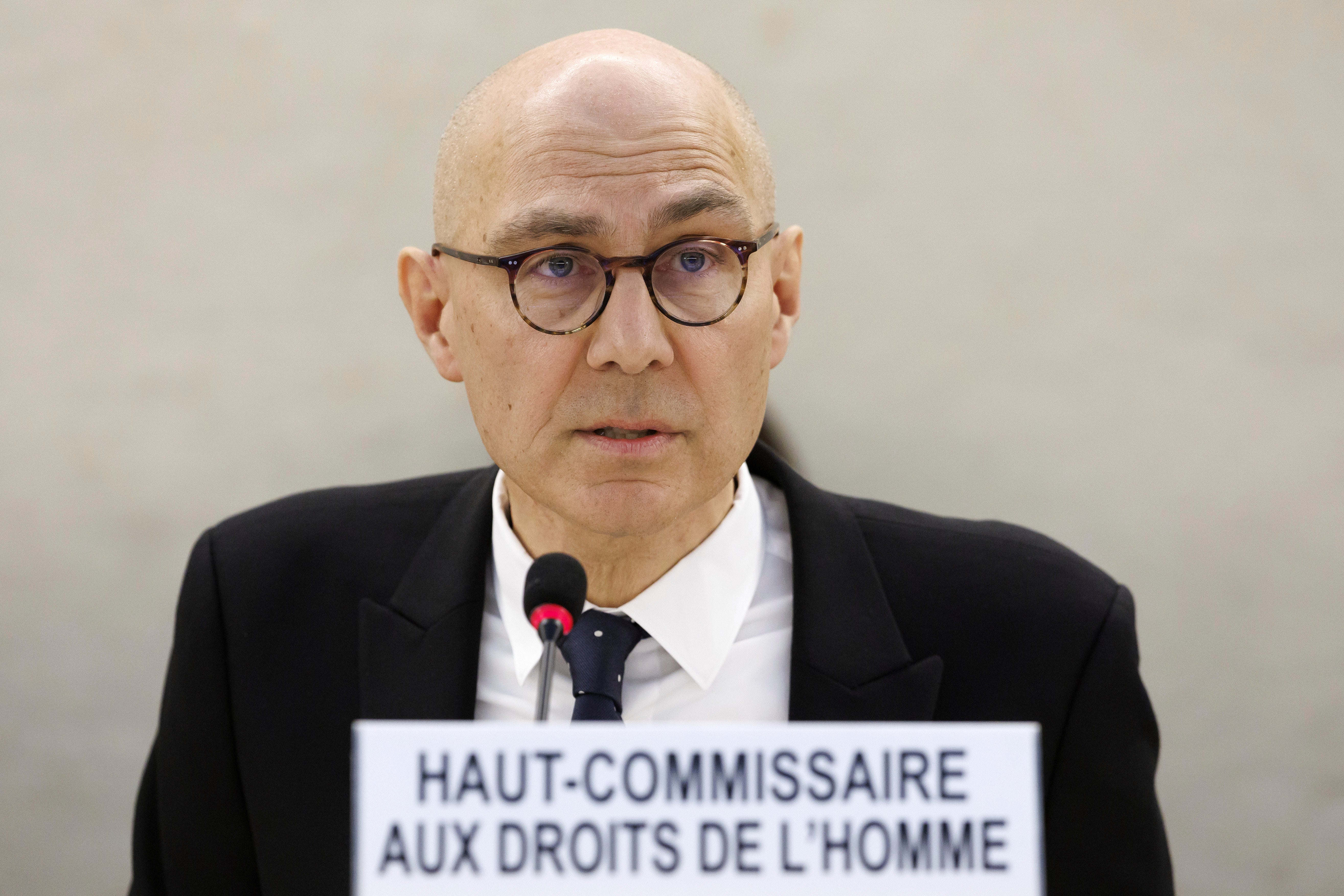UN rights chief cites 'communication' about issues in China
The new U.N. human rights chief says his office has opened “channels of communication” to help follow up on concerns about the rights of minorities in China, including Uyghur Muslims and Tibetans

Your support helps us to tell the story
From reproductive rights to climate change to Big Tech, The Independent is on the ground when the story is developing. Whether it's investigating the financials of Elon Musk's pro-Trump PAC or producing our latest documentary, 'The A Word', which shines a light on the American women fighting for reproductive rights, we know how important it is to parse out the facts from the messaging.
At such a critical moment in US history, we need reporters on the ground. Your donation allows us to keep sending journalists to speak to both sides of the story.
The Independent is trusted by Americans across the entire political spectrum. And unlike many other quality news outlets, we choose not to lock Americans out of our reporting and analysis with paywalls. We believe quality journalism should be available to everyone, paid for by those who can afford it.
Your support makes all the difference.The new U.N. human rights chief said Tuesday that his office has opened “channels of communication” to help follow up on concerns about the rights of minorities in China, including Uyghur Muslims and Tibetans. But this fell short of activists' hopes for a stronger message to Beijing.
High Commissioner for Human Rights Volker Türk, in an address highly anticipated by rights advocates, didn't detail how his office plans to follow up on a critical report on China's western Xinjiang region published in August by his predecessor, Michelle Bachelet. That report cited possible “crimes against humanity” against Uyghurs and others in Xinjiang.
Türk noted that the U.N. rights office “documented grave concerns" like arbitrary detentions and family separations in China, and called for "concrete follow-up.” He also voiced concerns about the impact of the national security law in Hong Kong that fanned huge protests.
“Regarding China, we have opened up channels of communication with a range of actors to follow up on a variety of human rights issues, including the protection of minorities, such as for Tibetans, Uyghurs, and other groups,” Türk told the Human Rights Council's latest session.
It was his first presentation of the office's annual report since he took office in October. It covered an array of concerns like pressure on women’s rights, discrimination, conflict and climate change, in a sweeping number of countries — from Afghanistan to Zambia.
The rights chief highlighted Russia's one-year war in Ukraine, the continued fighting in Syria, and instability in Mali and Burkina Faso. He also expressed concerns about crackdowns on dissent, free expression and political activists in parts of Asia, the Middle East and North Africa.
Türk further cited reports of “excessive use of force, racial profiling and discriminatory practices by police — most recently in Australia, France, Ireland and the United Kingdom."
He said he was “deeply concerned by multiple trends” in Russia like the closure of the offices of independent press and activist groups, and “constant” pro-war messages on state media that “feed stereotypes and incite hatred and violence.”
Advocacy groups had been particularly listening for Türk's take on the rights situation in China.
Agnes Callamard, the secretary-general of Amnesty International, said last month that Türk should “publicly put his weight” behind Bachelet's report and include in the council session “a significant brief on Xinjiang that reflects the gravity of the findings” of the U.N. rights office.
“It will be an important message in many ways,” she told the ACANU press association. "I think the high commissioner will be very much judged by his willingness and his courage to stand up to China and other superpowers.”